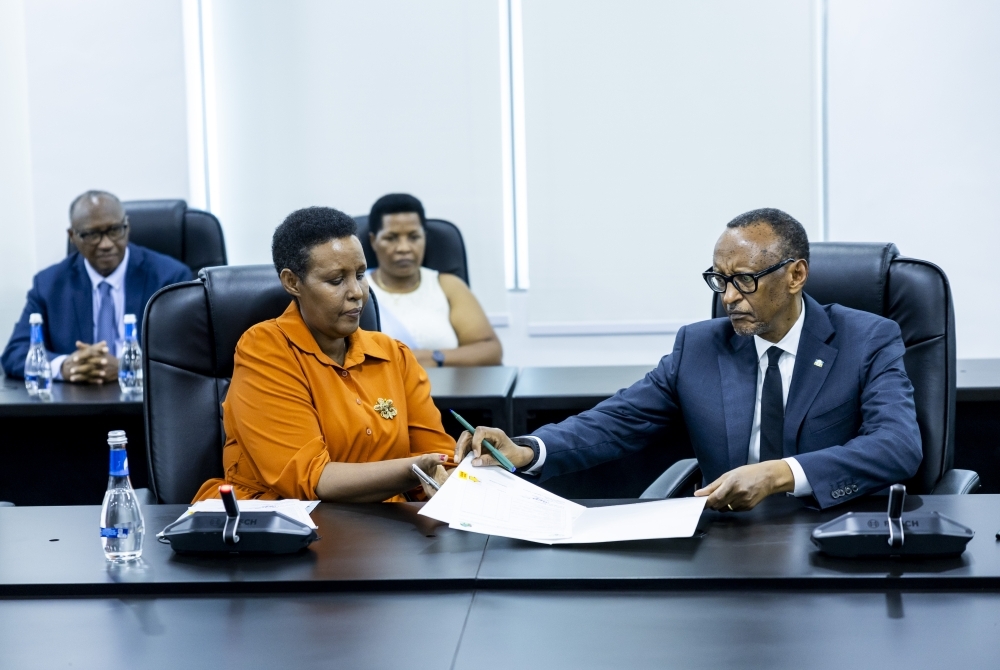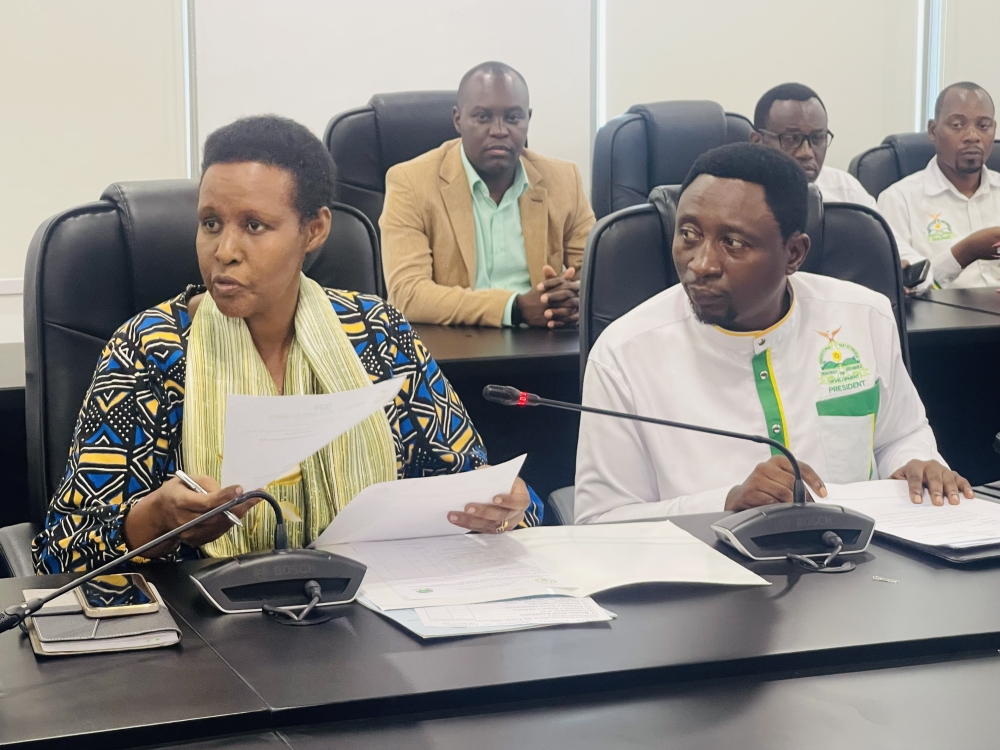

By May 30, the deadline set by the National Electoral Commission (NEC) for submission of candidatures, nine individuals had submitted their files intent on running for President in the July polls. Throughout the country, elections for the President are due July 15, while it is expected that the diaspora will vote on July 14.
The period for submitting candidatures was from May 17 through May 30. NEC indicated that it registered nine presidential aspirants – comprising seven who are independent, and two from political organisations.
Here are the presidential hopefuls:
Paul Kagame
The incumbent President of Rwanda, Paul Kagame, a flag-bearer of the Rwanda Patriotic Front (RPF-Inkotanyi) – the ruling party in the country – submitted his candidature on Friday, May 17.
Kagame has been the president of Rwanda since 2000.
In 2017, he was re-elected to the presidency after a landslide victory of more than 98 per cent of the total votes cast. According to the Secretary General of RPF-Inkotanyi, Wellars Gasamagera, the Rwandan population is still confident in Kagame as their leader based on his good record in steering the country to development.
Frank Habineza


Frank Habineza, the chairperson of the Democratic Green Party of Rwanda, attempts to be the Head of State again, after a failed bid in the 2017 presidential polls where he got 0.45 per cent of the total votes. On May 20, Habineza said: "What we are putting forward is to have a better country, where we have food security; where any Rwandan is certain of food and no one goes hungry, without having to import food, and have ample security.”
Herman Manirareba
Herman Manirareba, said that he deserves the presidency as "I have the capacity, I know my country adequately from its origin,” adding that reinstituting the monarch would be his first priority.
In 2018, he said, he wrote to Parliament’s Chamber of Deputies requesting that the constitution be changed so that Rwanda returns to a monarch, and "the Republic returns to Europe where it came from".
"Me, I don’t want fixed terms. As soon as I get to power, I can’t do any other activity apart from changing the constitution so that Rwanda returns to a monarch [system] because I was very saddened by the way it was abolished,” said the independent presidential aspirant.
ALSO READ: Presidential elections: First independent candidate Herman Manirareba faces signature hurdles
Manirareba said that Rwanda’s monarch was removed by Belgian colonialists in partnership with missionaries – white fathers –through a coup on January 28, 1961, in Gitarama (in current Southern Province).
"What I want is the well-being of the country, the sustainability of the country through a governance system that is sustainable, promising,” he said.
ALSO READ: More presidential aspirants submit candidatures
Innocent Hakizimana
A high school teacher, Hakizimana said he is "an educationist who has taught for more than 12 years in different districts, who also studied education as the first pillar of the country.”
The independent presidential aspirant from Nyabihu District said that he does not have leadership experience but argued that experience is not a prerequisite for governance.
Hakizimana indicated that he has a good manifesto which he would implement if his candidature is approved and he wins the presidency.
He told journalists that he would bring about changes including making driver’s licences valid forever as there is no point in limiting their validity, among other things.
Thomas Habimana
Habimana, a head teacher at Hope Technical Secondary School in Rubavu District, said that his main mission is to continue promoting the peace attained in the country, so far.
The independent presidential aspirant has been in a teaching career for 13 years.
"I was inspired by the need to contribute to the sustainable development that was achieved after the 1994 Genocide against the Tutsi,” he said.
Fred Barafinda Sekikubo
Barafinda, an independent presidential aspirant who claims to be a global educator, said that he wants to contribute to a greater decentralisation of government services to ease residents’ access to services including enabling people to get, at district or sector level, documents required for travelling abroad.
In the 2017 elections, Barafinda gathered fewer signatures of registered voters to support his candidature, according to NEC.
Diane Shima Rwigara
Diane Shima Rwigara, an independent presidential aspirant, said that her political programme is centered on the continuous economic development of the country.
She said: "When I get elected, I will promote food security and make sure that everyone has a roof over their head and every citizen is able to send children to school without any complications.”
In 2017, Rwigara wanted to bid for the presidency but was disqualified over falling short of requirements for independent candidates for the top leadership position in the country, according to NEC, which cited her failure to get the minimum 600 registered voters’ signatures supporting her candidature in 30 districts of the country.
Jean Mbanda
Jean Mbanda, a former lawmaker, said that he considers his candidature as a good way to support the incumbent President, adding that his submission intends to prove that there is no dictatorship in Rwanda. Mbanda was a member of Rwanda’s Transitional National Assembly
The Transitional National Assembly of Rwanda was the unicameral legislature of Rwanda from 1994 to 2003. It was based on the Arusha Accords of 1993 following the 1994 Genocide against the Tutsi. In 2003, it was replaced by a bicameral Parliament.
ALSO READ: The journey of the Rwandan parliament
"I have submitted a candidature with an aim to support the current government and its leader to uphold unity,” said the independent presidential aspirant.
Currently, Mbanda said, he is a sports and passenger transport consultant, pointing out that he has experience in such areas.
Philippe Mpayimana
Independent presidential aspirant Philippe Mpayimana, underscored the need for continuous progress for Rwanda and its people.
It is his second attempt for the Head of State position after an unsuccessful attempt in 2017 when he got 0.72 per cent of the total votes in elections that the incumbent, Kagame, won by a landslide.
Mpayimana is now a senior expert in charge of community engagement at the Ministry of National Unity and Civic Engagement (MINUBUMWE), a position he has held since November 2021.
NEC will announce a provisional list of candidates on its website on June 6, and a final list on June 14.
Aspirants whose files are incomplete can submit their missing documents before June 14, the date when the final list will be made public, according to NEC.
The campaigns for the approved candidates will begin on June 22 and close on July 13 before voting gets underway from July 14 to 15.


